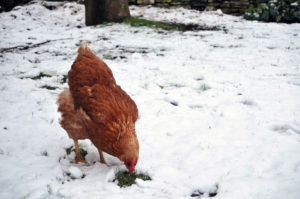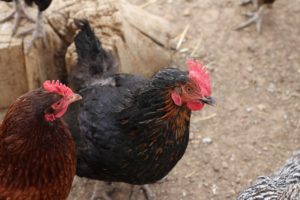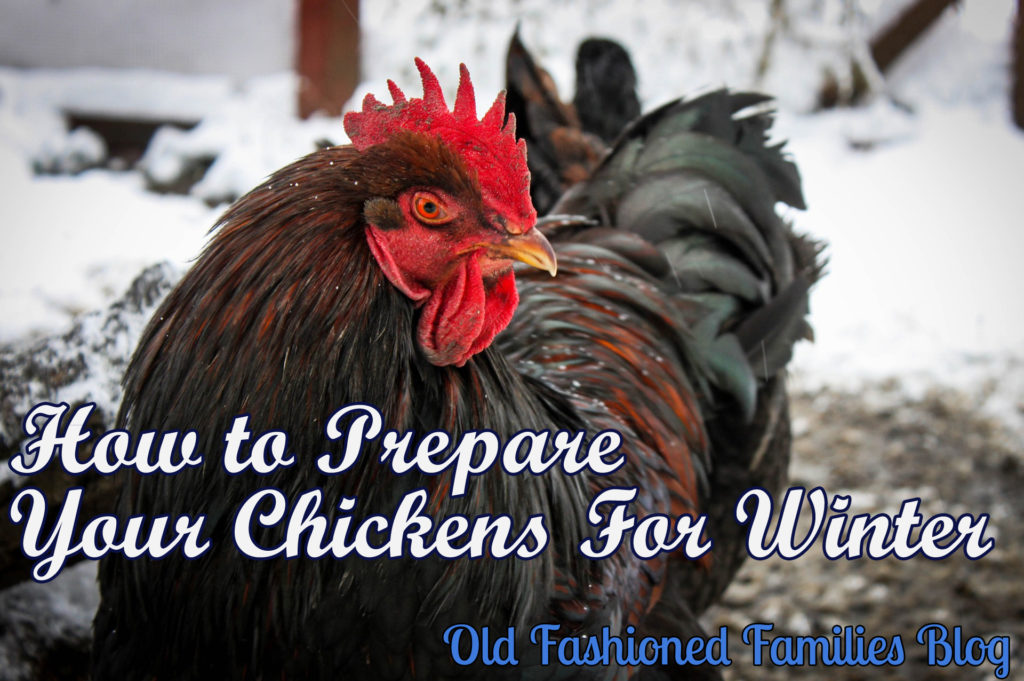For most of the year, chickens are actually surprisingly simple to care for and require little maintenance. However, making sure that your chicken coop is properly winterized is absolutely paramount to the health of your feathered flock—especially as the temperatures continue to drop. So, today, here are some things that to keep in mind in order to prepare yourself and your girls for the cold days ahead.
Inspect the Coop
Take some time and inspect your coop to make sure that it’s up to par. You really should be doing this periodically throughout the year, but winter is a great chance to make sure everything is in good repair, that you have enough nesting space for everyone to sleep off the ground, and that there aren’t any holes where hungry predators could sneak in and have lunch.
Winter cleaning
While you’re inspecting the coop, take an afternoon and clean out all the old bedding and replace it with a thick layer of bedding. Some people recommend pine to help with the ammonia while others suggest hay because it’s warmer. Personally, I use a combination for best results. The goal is to keep things as dry and warm as possible. Make sure you put some extra in the heavily-used areas, and under the roosts to help with the smell.
Keep it warm
 It’s important to ensure that your chickens can stay warm as the weather drops near or below freezing. Add a tarp to the outside of the coop to help protect from drafts, and make sure you close the extra vents. Make sure that you still have some air circulation, though, as dampness will lead to frostbite in the cold months.
It’s important to ensure that your chickens can stay warm as the weather drops near or below freezing. Add a tarp to the outside of the coop to help protect from drafts, and make sure you close the extra vents. Make sure that you still have some air circulation, though, as dampness will lead to frostbite in the cold months.
Electricity
If you can, hooking the coop up with electricity is a good idea in the winter both for the comfort of the chickens and to extend their laying season. Use a heat lamp to keep things snug if you live in an exceptionally cold area, but be aware of the risks and don’t run it constantly—temperatures just need to stay above freezing. A regular light is a good idea if you want to continue egg production, as chickens need at least 16 hours of light a day to lay.
Weathering the Cold
Once the cold sets in, you’ll find that there isn’t quite as much you need to do with the chickens, although it’s still important to check on them a couple times a day. If you expect a lot of snow, be careful not to tromp a ton of it in the coop as you’re trying to limit moisture. I usually put a little platform I built near the entrance so I can sweep it clean and stomp my boots on that to remove some snow clumps before going in to collect eggs and check on everyone.
Dealing with Frozen Water
Make sure clean, fresh water is available, but you won’t want to have the water inside the coop, as combating dampness is a priority. Damp conditions mixed with freezing temperatures results in frostbite for your chickens and roosters. So, this means you’ll have to either check regularly and break the ice from the watering dishes, or else invest in a water heater to give your chickens access to water all day. The Chicken Chick has a great cheap cookie tin heater that you can make yourself for pretty cheap. Check it out here. For the evenings, add a poultry nipple watering system so they have access inside the coop, but can’t spill it everywhere.
 Stock up on Food
Stock up on Food
Make sure that you stock up on food before winter comes as you may not be able to get out and get food. It’s important to offer good nutrition to keep your chickens healthy. Expect a slightly increase in caloric intake during the winter months. It’s especially important that your chickens don’t lose weight in the winter as they need to stay warm.
Check for Frostbite
Keep an eye on your roosters and chickens and check for frostbite on their feet, combs, and waddles. Generally speaking, chickens with larger combs and waddles are more at risk. If you find frostbite on one of your chickens, the best solution is to take them to a vet for treatment. But, if you want to try and handle it at home there are things you can do. I personally don’t have a lot of experience with dealing with frostbite, but The Chicken Chick has a great guide to handling frostbite that you should check out that is full of great Do’s and Don’t’s for frostbite. Find it here.
What do you do for your chickens during winter? Tell me in the comments below! Thanks for reading!!


Leave a Reply